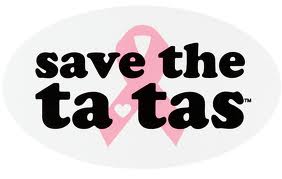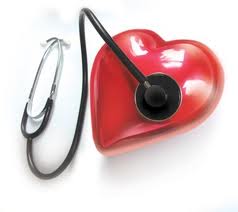Greetings Divas! And welcome to the week before the week leading up to Christmas. While I know you guys are busy shopping and preparing for the holiday season, I hope that you find a few minutes to read this post in its entirety, as it provides information on a very important topic: Women’s Health!
Now I am not a doctor in any shape or form, but I do have a great relationship with my primary physician. So great in fact that I often talk with him about different types of health-related screenings for women. In having these discussions with my doctor, and the nurse practitioners in his office, I have learned of a long list of health screening that all women should have, but neglect to get…hence the reason for this post!
In the spirit of sharing, please accept this list of the 4 important health-screenings that all women should have, and why. For all of my Professional Divas in the medical field, please feel free to comment on this list and/or add additional screenings. I would love for this to be an open forum for us to exchange information that is beneficial to our health, so help me out and spread the word!
Mammogram and Breast Examination – According to the Centers for Disease Control (CDC), breast cancer is the most common cancer among women in the United States, and is one of the leading causes of cancer death among women of all races. As such, the American Cancer Society recommends the following breast screening guidelines for most adults:
- Starting at the age of 40, women should have yearly mammograms so long as the woman is in good health;
- Women in their 20s and 30s should have a clinical breast exam about every 3 years;
- Women should conduct regular breast self-exams starting in their 20s;
- All women should know how their breast normally look and feel, and should immediately report any breast change to their health care provider.
Please note that there are different breast screening recommendations based on a woman’s family history, genetic tendencies, or other factors. These women should speak with their doctor about the need for additional tests.
Pap Tests and Pelvic Exams – According to the CDC, the number of cases of cervical cancer and the number of death from cervical cancer has significantly decreased over the past 40 years. This decline is largely attributed to women getting regular Pap tests and pelvic examinations. These tests are successful in finding cervical pre-cancer before it turns into cancer. As such, this screening is a MUST for women! The American Cancer Society recommends the following cervical screening guidelines for most adults:
- All women should begin screening for cervical cancer about 3 years after they begin having vaginal intercourse, but no later than 21 years old. These screenings should occur every year with the regular Pap test, or every 2 years using the liquid-based Pap test;
- Beginning at age 30, women who have had 3 normal Pap test results in a row may get screened every 2 to 3 years;
- Women older than 30 may get screened every 3 years with either the conventional or liquid-based Pap test, plus the human papilloma virus (HPV) test;
- Women 70 years of age or older who have had 3 or more normal Pap tests in a row and no abnormal Pap test results in the last 10 years may choose to stop having Pap tests;
- Women who have had a total hysterectomy may choose to stop having Pap tests, unless the hysterectomy was performed as a treatment for cervical cancer or pre-cancer; and
- Women who have had a hysterectomy without removal of the cervix should continue to have regular Pap tests.
Again, there are different cervical screening recommendations based on a woman’s family history, genetic tendencies, or other factors. These women should speak with their doctor about the need for additional tests.
Blood Pressure Screening – Fact: High blood pressure can lead to heart disease and stroke, which are the 1st and 3rd leading causes of death in the United States, respectively. Fact: High blood pressure can also lead to congestive heart failure and kidney disease. Fact: One out of three adults in the United States has high blood pressure. Fact: High blood pressure is preventable! How you ask? In addition to adopting a healthy diet, maintaining a healthy weight, and being physically active, getting your blood pressure checked regularly is a great step towards prevention. The Agency for Healthcare Research and Quality recommends that women have their blood pressure checked at least every 2 years, so get tested!
Cholesterol Screening – Did you know that in the United States, more women than men have high cholesterol? According to the CDC, 10.3% of women age 20-34 and 12.7% of women age 35-44 suffer from high cholesterol. Need more numbers? Well, 19.7% of women age 45-54 suffer from high cholesterol. The interesting thing is that high cholesterol usually exhibits no signs or symptoms, but can increase your risk for health disease. How do you know if your cholesterol is high? You get a blood test! The National Cholesterol Education Program recommends that healthy adults have their cholesterol levels every 5 years. Have you had yours?
Okay Divas, these are my four. I challenge you all to take control of your health, meet with your team of medical professionals, and schedule the necessary tests. I hope that you all have learned a little something from this post. Again, I want this to be an open forum for an exchange of beneficial health information, so please spread the word!

















0 comments:
Post a Comment